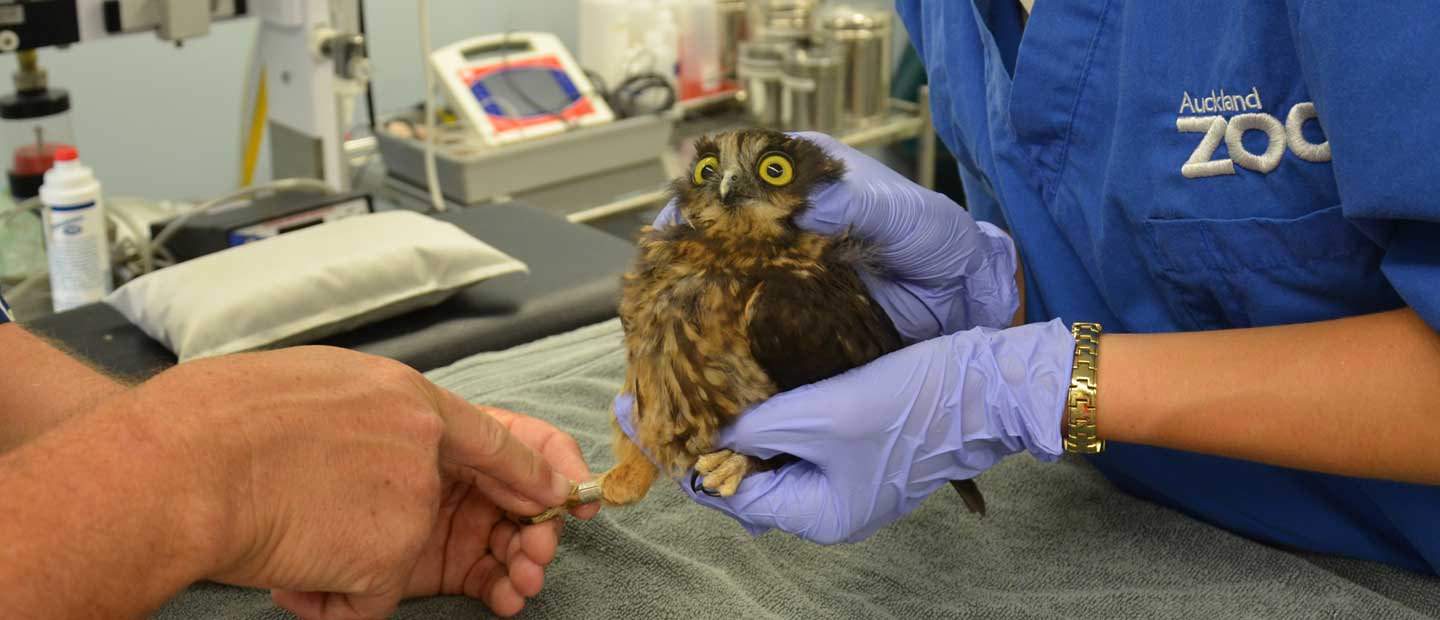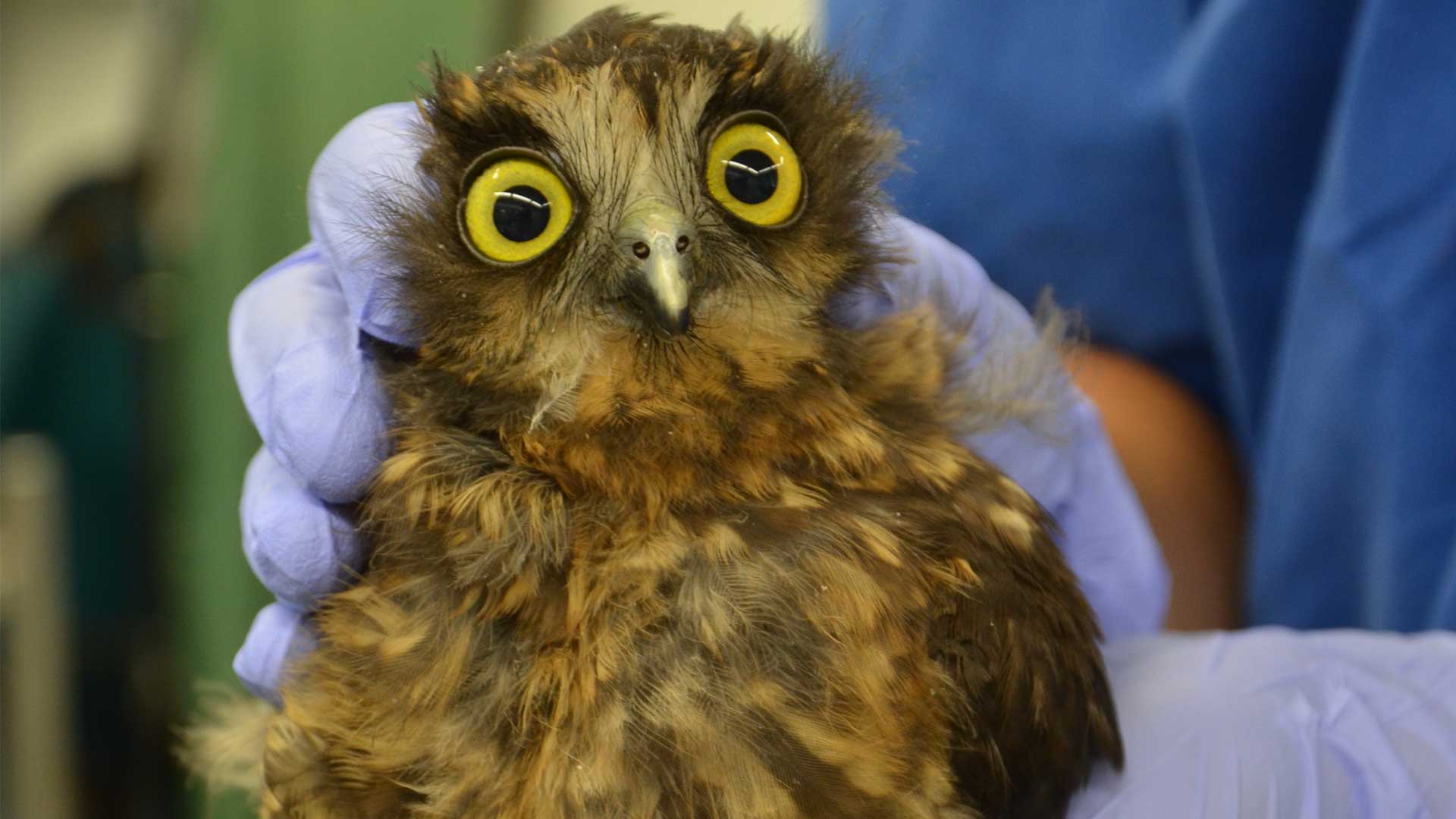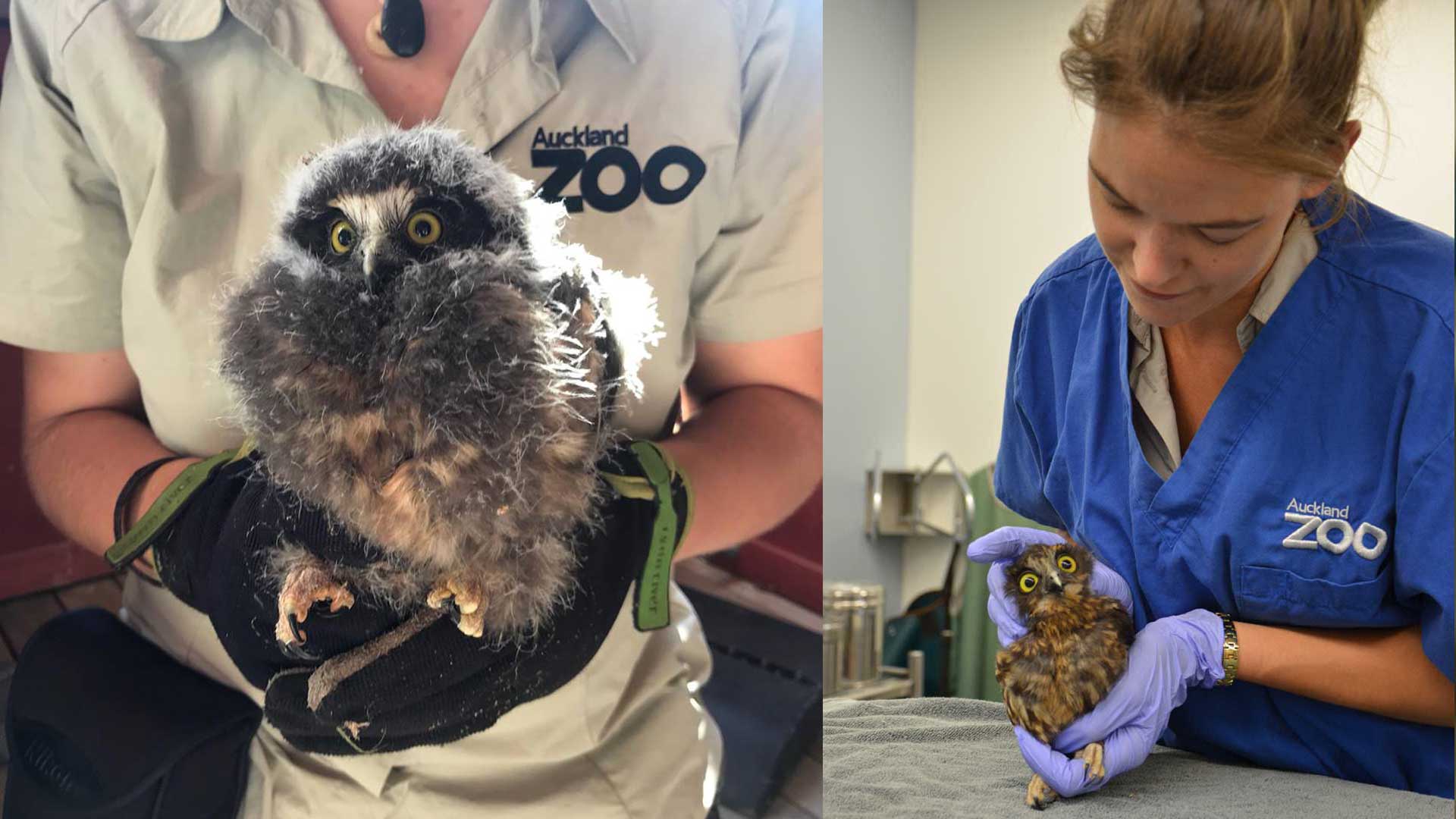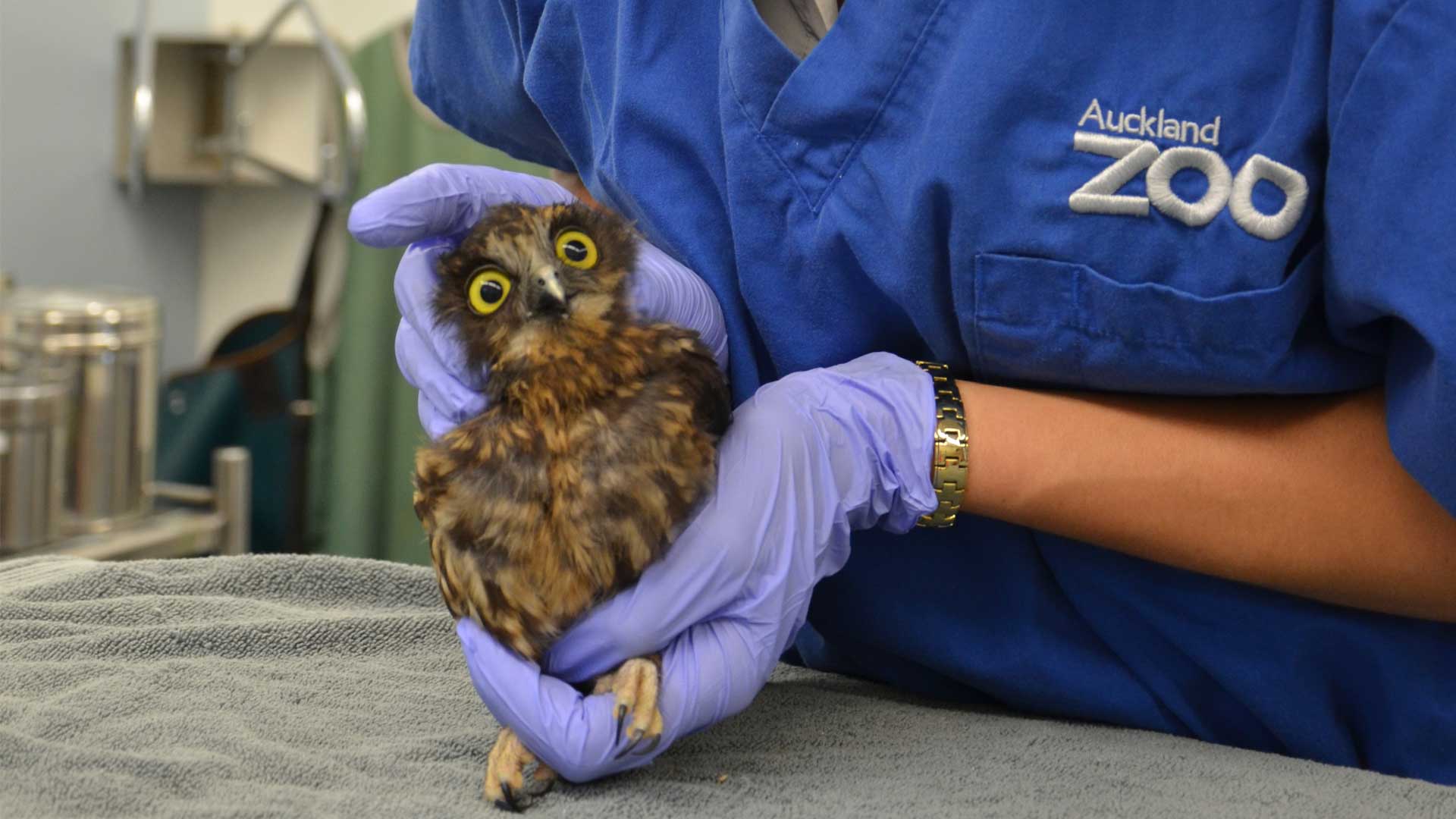A brave little ruru fledgling that broke the tip of its beak while learning to fly on Rotoroa Island in early December and spent six weeks at Auckland Zoo, is now flying high back home!
Rotoroa Island manager Kevin Rigarlsford alerted Auckland Zoo bird keeper and Rotoroa’s summer ranger Michelle Mudford on 4 December when he discovered the young morepork huddled in a corner of the island’s visitor centre deck. (The centre is close to large mature trees with cavities that are perfect for ruru to both roost and nest in).
“It looked as though it had tried to fly overnight, and hadn’t quite got the hang of it enough to get up to roost with mum and dad by the morning, so we kept it safe and cool in a box for the day, and being nocturnal, set it free in the evening,” says Michelle.
Michelle explains: “Mum came down and stayed with it until it started flapping its wings and trying to fly again. At one point it appeared to hit its head on the centre’s roof and fall to the ground, but got right back up again, and a second adult came to its rescue – we think dad. The next morning I received another call from the managers explaining it had popped out of the bushes, and was displaying a lot more attitude. However, I was able to get close and pick it up to check it, and it was then we discovered its beak injury.”





